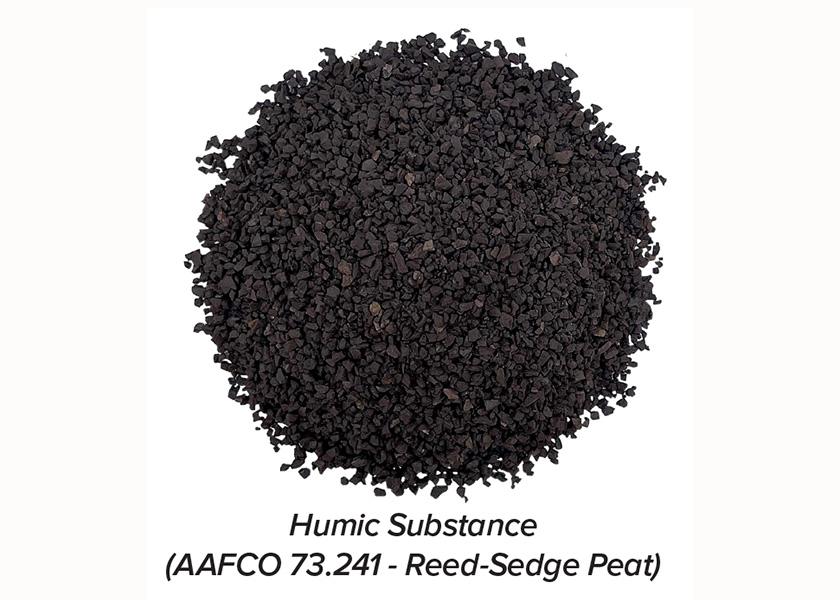Humic Substance May Improve Finishing Pig Productivity, Kent Nutrition Group Says

As finishing pig mortality continues to increase, some experts believe the use of a humic substance (HS) can help improve finishing pig productivity.
In a series of company studies, Tom Weber and Michael Edmonds, PhD nutritionists at Kent Nutrition Group, studied the impact of feeding a HS to finishing pigs. Humic substances are the main constituents of natural organic substances that arise from the physical, chemical and microbiological transformation of biomolecules.
“Although feeding a HS to provide bioactive components such as humic and fulvic acids does not likely address pathogen loads directly, feeding a HS may help support animal defense mechanisms by reducing free radicals associated with oxidative stress,” the authors said in a recent report.
Additionally, increased levels of endogenous antioxidants and the ability to maintain more of a homeostatic state during stressful periods can potentially make animals more resilient in the face of environmental and other challenges encountered during the finishing grow-out period, the authors added.
Support Oxidative Balance and Animal Health
In a study conducted in pigs in 2014, Weber observed pigs fed a HS had increased serum glutathione levels.
“Increased levels of this important endogenous antioxidant may be indicative of an improved antioxidant capacity,” the authors said. “Interestingly, this finding aligns with data from more recent published research studies conducted in laying hens and rodents where it was observed that feeding a HS increases endogenous glutathione levels.”
In the study conducted by Weber, pigs fed a HS maintained greater serum glucose levels when subjected to an inflammatory challenge model in the form of an E. coli lipopolysaccharide (LPS) injection. Researchers said this suggests pigs supplemented with the HS maintain a more favorable energy status enabling them to better cope with challenging scenarios.
“It is also interesting that when the HS was fed in combination with a source of butyric acid, the increase in serum cortisol, a stress hormone, was substantially decreased (~62%) post LPS challenge,” the authors said.
This indicates there could be further benefits when combing a HS with other feed additive technologies.
Enhance Resilience in Stressful Environments
Studies conducted in broilers by Edmonds previously demonstrated that feeding a HS improves livability when broilers are subjected to heat stress conditions. From a mechanistic perspective, an improved antioxidant status and decreased inflammatory response, as shown in published studies evaluating HS, may allow animals to better cope with heat stress.
“Another aspect of HS biology that may lead to animals becoming more resilient in the face of environmental stressors when they are fed a HS is the positive impact on intestinal morphology and intestinal connective tissue integrity,” authors said.
Earlier original basic research by Yasar et al., observed increased intestinal villus height and crypt depth in animals fed a HS. It was also observed that intestinal hydroxyproline content was increased in animals fed a HS which is reflective of increased collagen content.
In the past, HS have been shown to directly increase the chemical and physical resistance to degradation of collagen fibers which may lead to greater intestinal connective tissue integrity.
What’s the Benefit?
Feeding a HS to finishing pigs, because of its indirect effects on antioxidant systems and other protective mechanisms, enables finishing pigs to better thrive during the grow-out cycle.
Weber and Edmonds say this benefits the producer in terms of improved livability.
“In a series of 11 finishing pig studies conducted over several years by the Kent Nutrition Group, it was observed that feeding a HS, on average, improves livability by approximately 0.7%. The improved livability benefit with feeding a HS, estimated at $1.50 per pig placed for each 1.0% decrease in mortality, demonstrates an almost certain return on investment when feeding a high-quality HS to finishing pigs,” the authors said in the report.
More from Farm Journal's PORK:
The Elephant In The Barn: Why We Can’t Ignore This Risk on the Pig Farm
When the Reality of the Hunger Problem Hits Close to Home
Biosecurity: Are We Adding Hazards Faster Than Control Measures?







